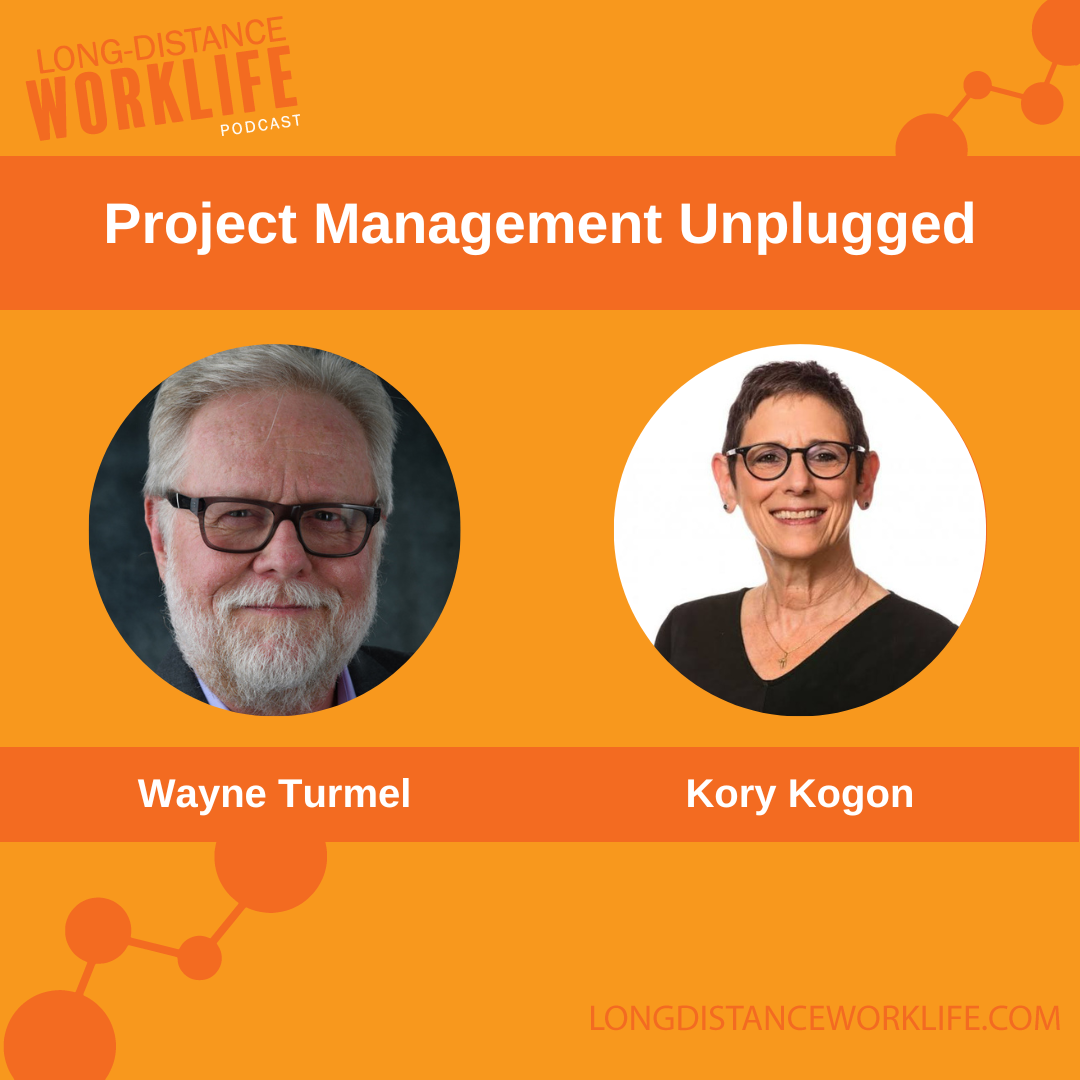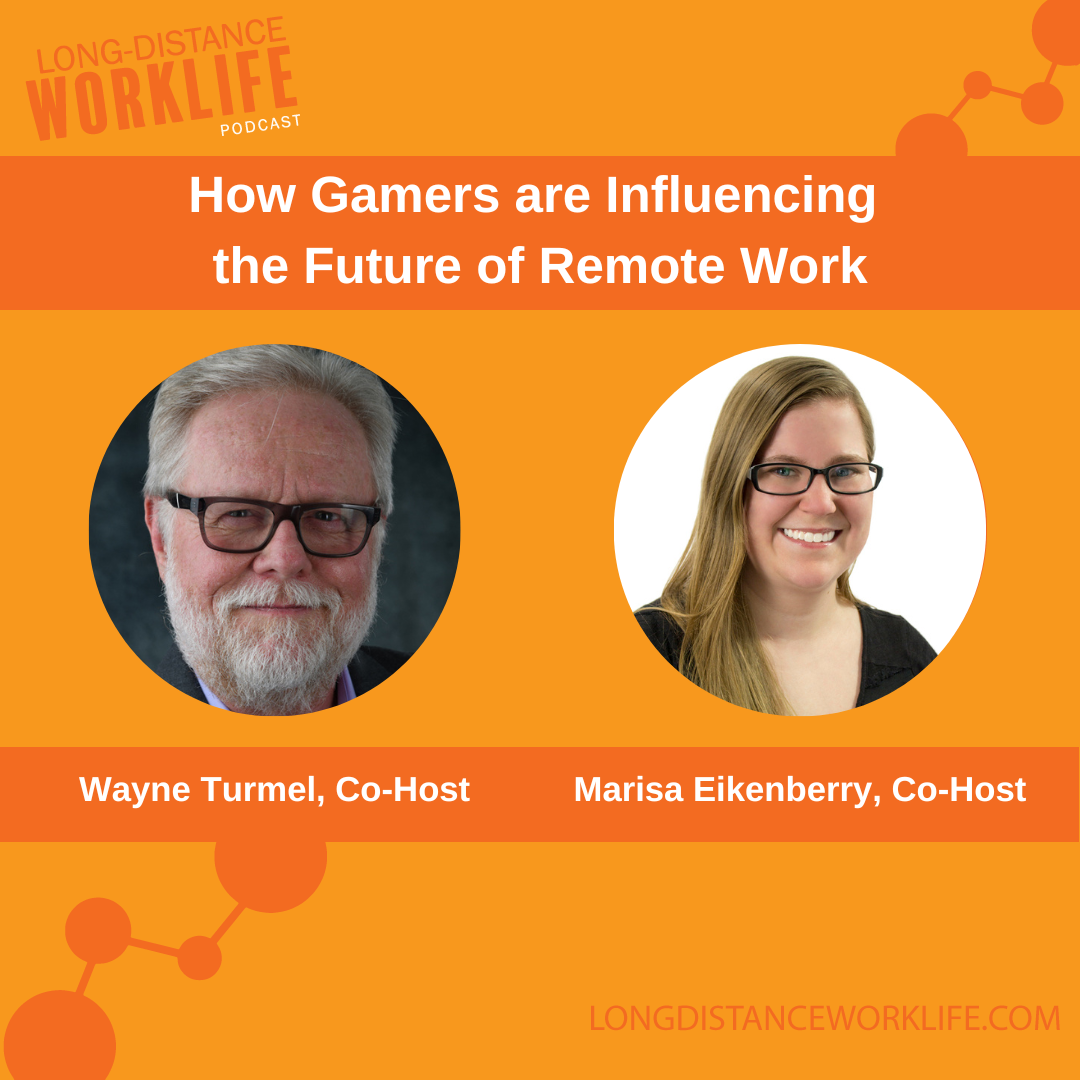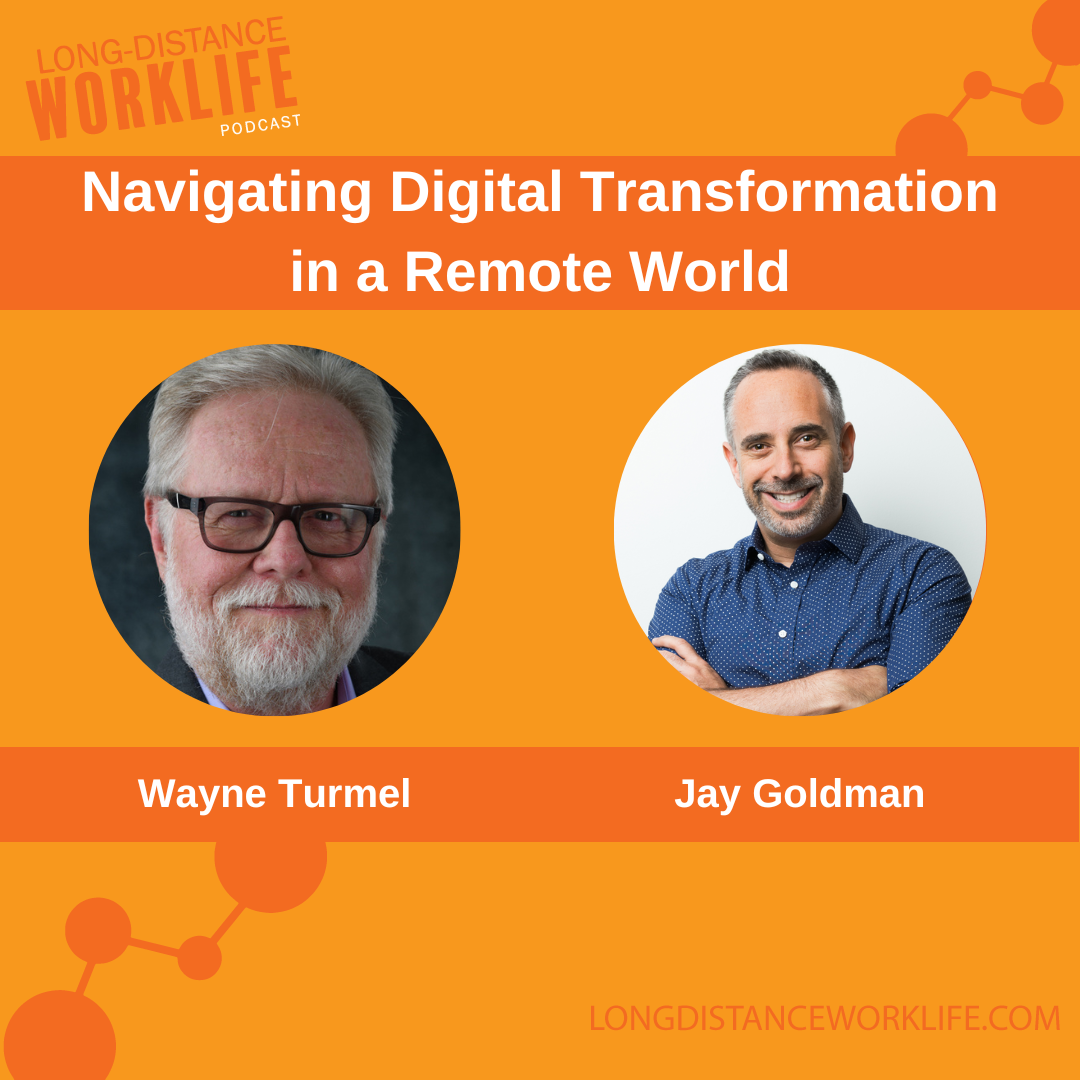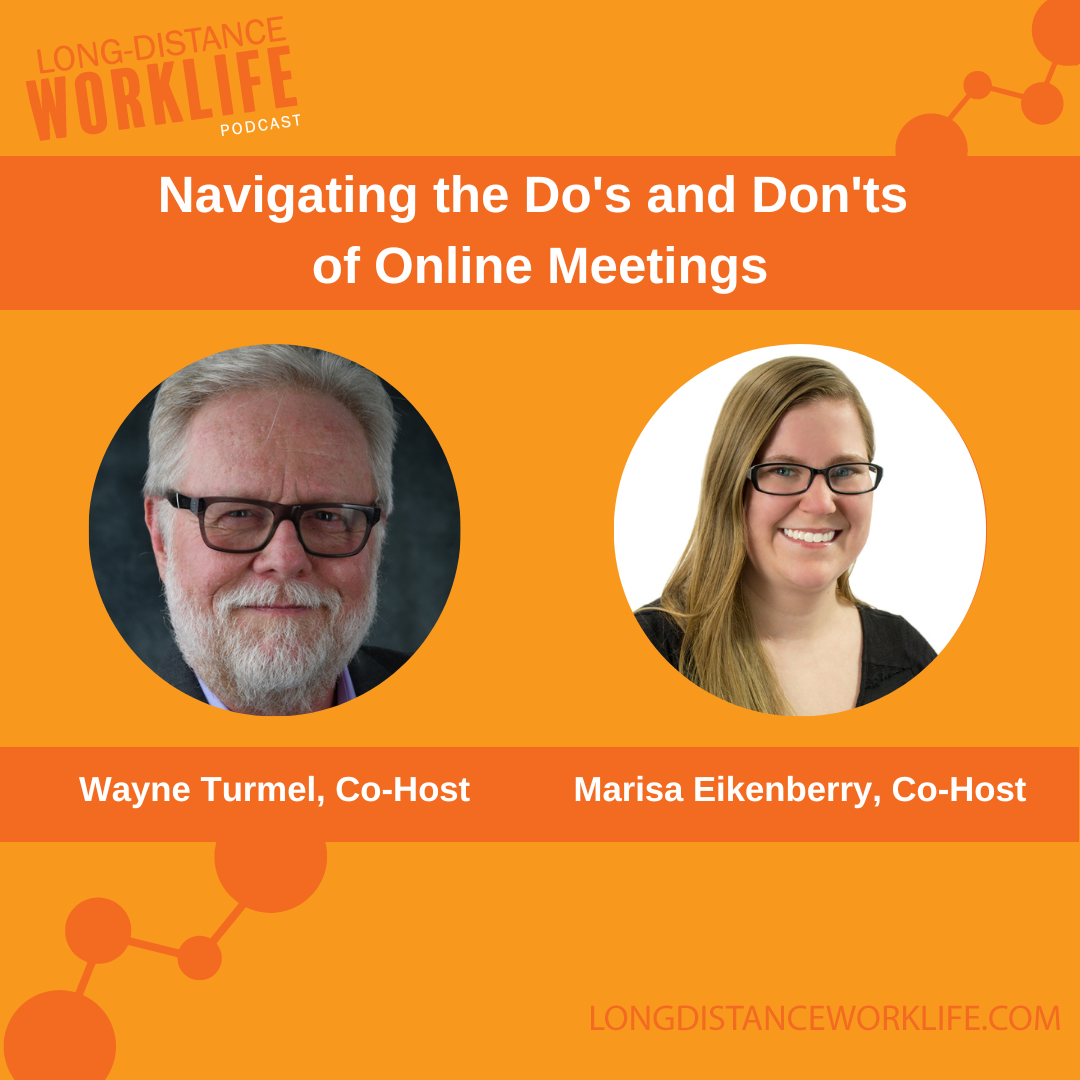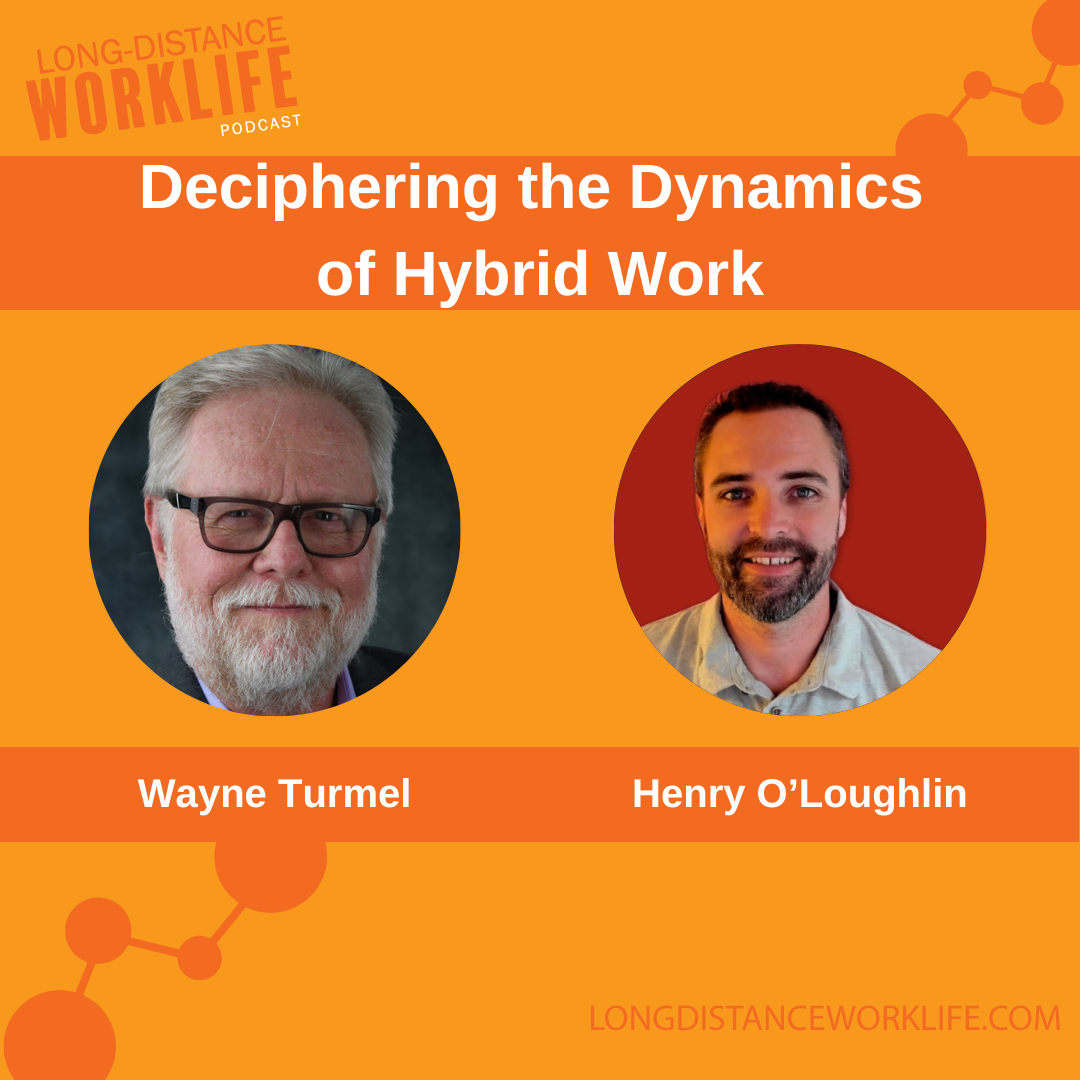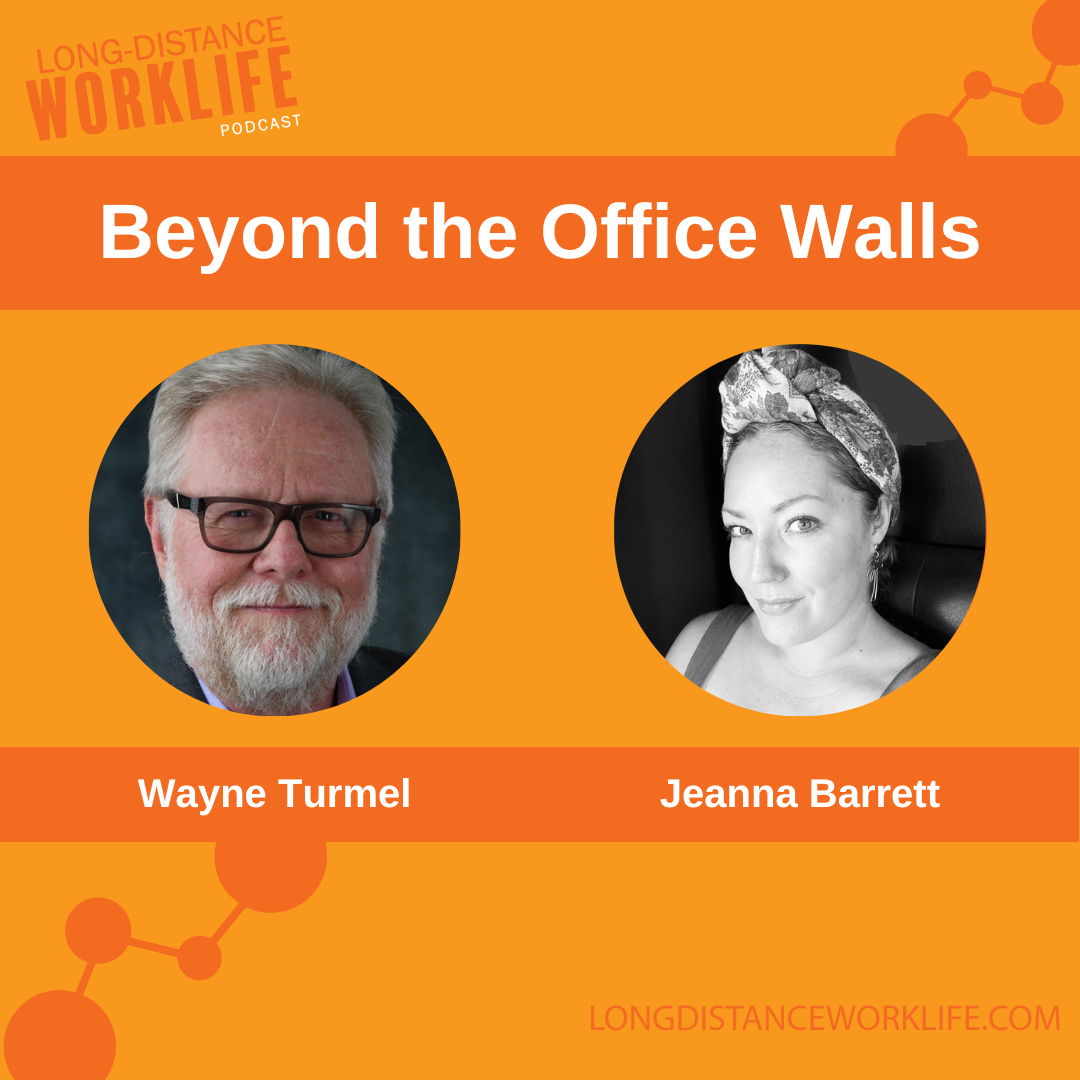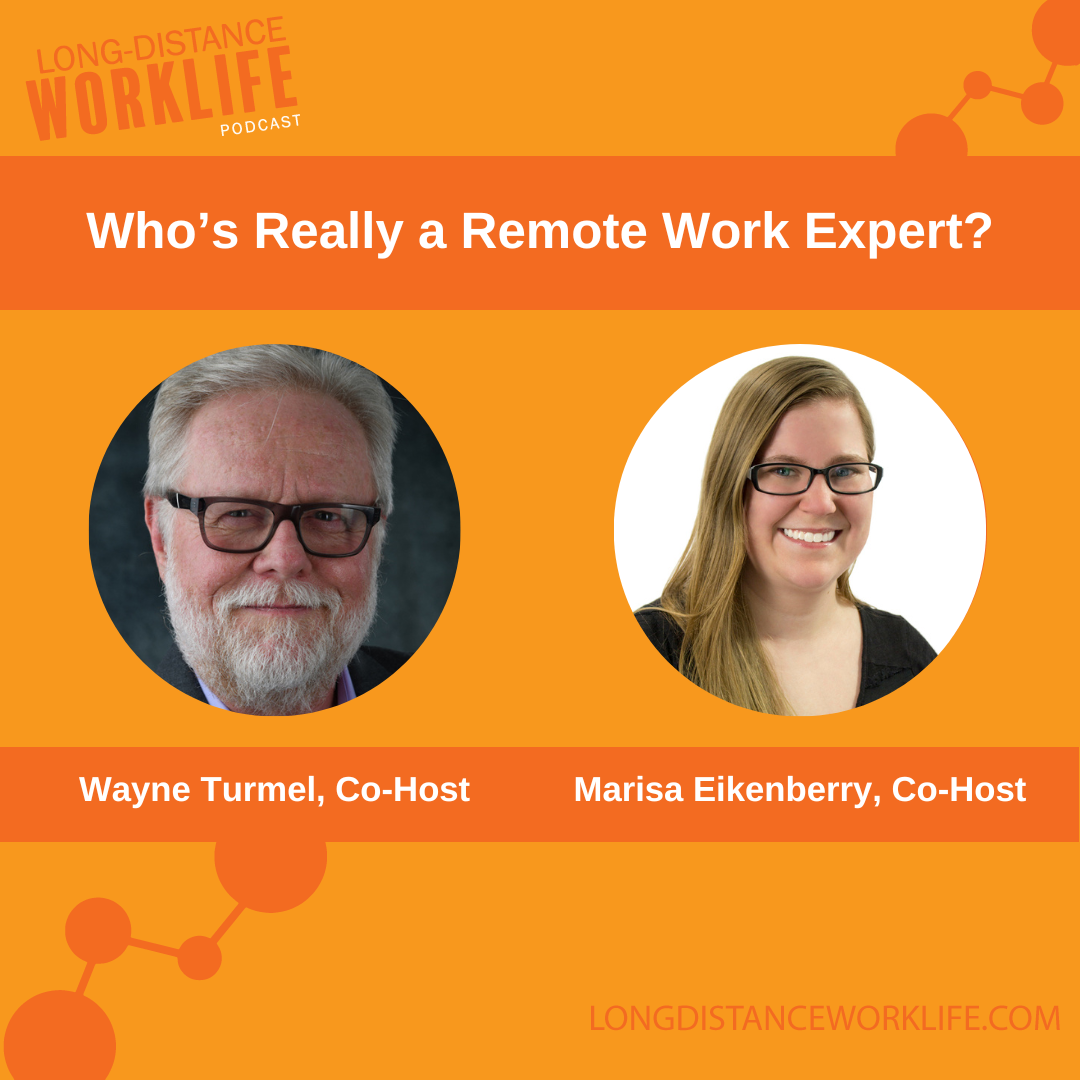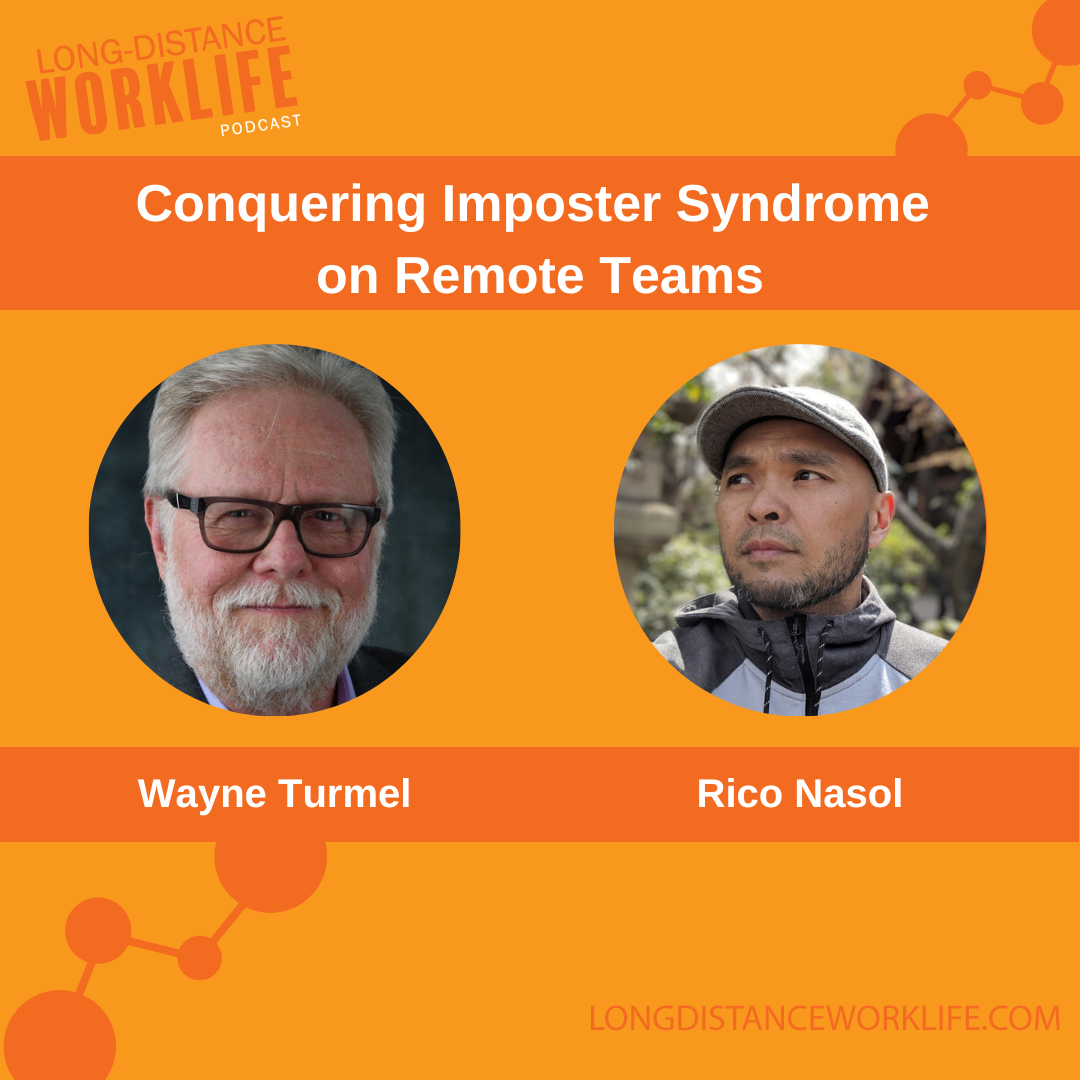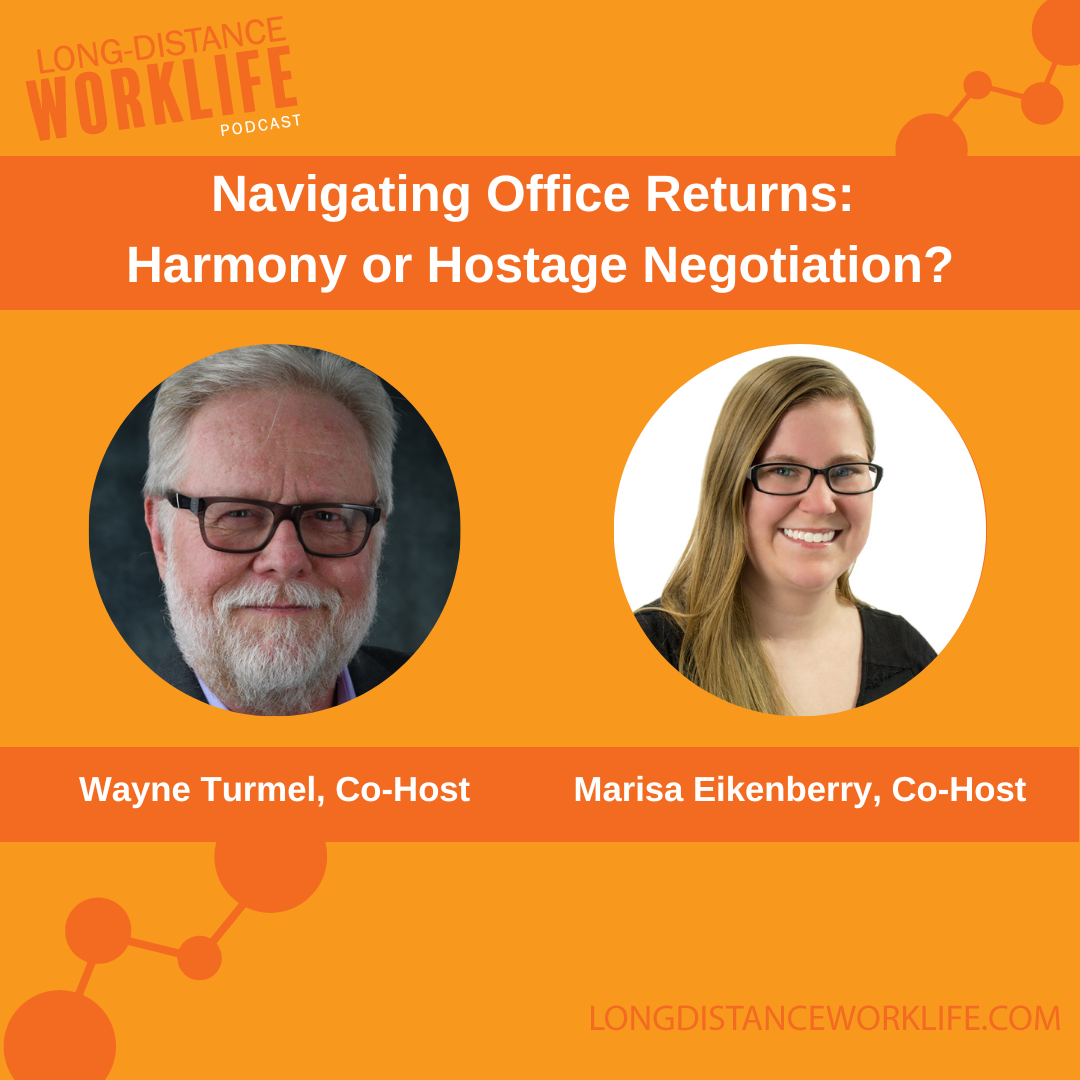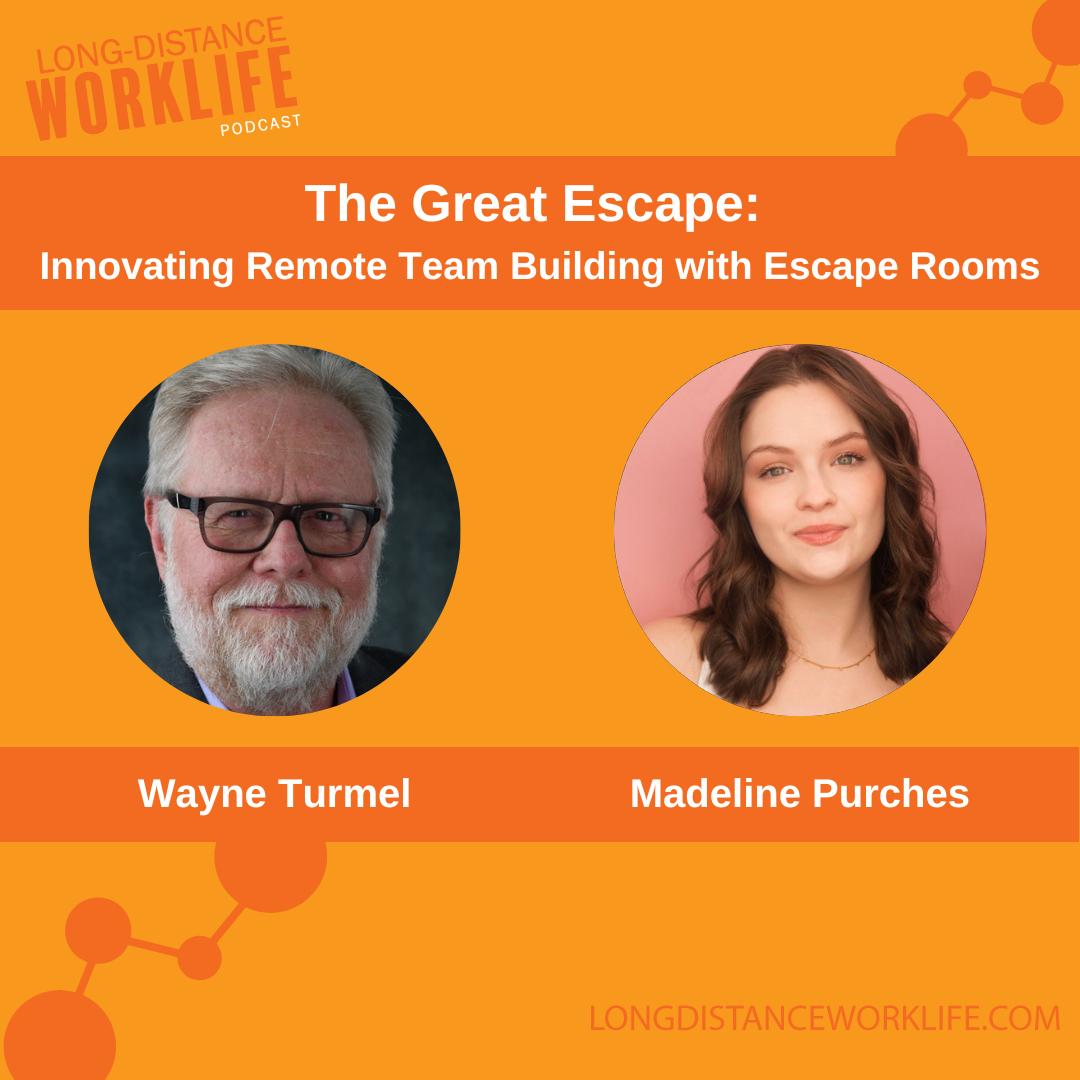Wayne Turmel sits down with Kory Kogon, co-author of "Project Management for the Unofficial Project Manager" and VP of Content Development at Franklin Covey. They delve into the vital skills and strategies needed for effective project management, particularly in remote and hybrid work environments. Whether you're organizing dinner or a high-profile event, Kory discusses the universal principles of project management and the critical role of informal authority and people skills in achieving project success.
Key Takeaways
1. Recognize the Scope of Project Management: Understand that project management skills apply to both small daily tasks and large-scale operations, and can enhance productivity in both personal and professional settings.
2. Embrace Informal Authority: Develop skills to manage teams effectively without formal authority. This includes building trust, demonstrating respect, and ensuring clear communication.
3. Utilize Simple Tools: Start with basic tools like Excel for project management to maintain visibility and coordination. Don’t be intimidated by complex software; focus on tools that help clarify and track project progress.
4. Focus on People Management: Acknowledge that the success of a project largely depends on the people involved. Practice leadership skills such as setting clear expectations, listening actively, and extending trust to empower your team.
5. Adapt to Remote and Hybrid Environments: Leverage technology to create a visual dashboard for your projects, ensuring that every team member understands their roles and responsibilities, regardless of their physical location.
00;00;08;01 - 00;00;50;02
Wayne Turmel
Hi, everybody. Welcome back to the Long Distance It's Work Life podcast where we try to make sense of the crazy emerging, constantly changing world of remote and hybrid work. And today I'm really excited. This is an important topic and we haven't really addressed it before. But one of the most important things in anyone's career is the ability to manage projects and and you don't have to be an official PMI blast project manager because there's all kinds of projects and we have an excellent, excellent guest today we are going to introduce you to.
00;00;50;05 - 00;01;07;14
Wayne Turmel
And here she is now, Cory Cogan, who is the coauthor along with Suzette Blakemore of Program Manager, Project management for the unofficial project manager. Tara Corey, who are you in? What the heck is the book about?
00;01;07;16 - 00;01;37;03
Kory Kogon
High range. First of all, thanks for having me. And I serve as a vice president of content development for Franklin Covey is familiar with God organization, hailing from the Seven Habits of Highly Effective People as the where it all started. And I am the lead author on our work around project management. I tend to be what they call the subject matter expert, although I'm not an expert on many things productivity and leadership.
00;01;37;03 - 00;01;49;02
Kory Kogon
So having run many projects in my life as an unofficial project manager on the scarred, unofficial project manager and just delighted that this book is so popular for people like me and others.
00;01;49;04 - 00;01;59;26
Wayne Turmel
Yeah, I think a lot of us did our first project management before we knew that's what we were doing.
00;01;59;28 - 00;02;32;06
Wayne Turmel
I kind of explained it to somebody. Once the projects run the range from cooking dinner for your spouse to, you know, putting on a high society wedding and there while they are essentially the same thing, there are levels of complexity and craziness that go along with it. Why do you think people find themselves in unofficial project management? How does that how does one find oneself in that space?
00;02;32;08 - 00;03;08;23
Kory Kogon
Well, first of all, you're exactly right. So since the beginning of time, if you were cooking dinner at the hearth for your family or having a family reunion or whatever, everything that has a beginning and an end, you know, is a project personally and professionally. So it's always been that way. But in the work force in particular, over the years as we've moved from, you know, sort of the factory, the the assembly line process kind of work and we slipped into the roles of being knowledge workers where we're paid to think in a very create and execute.
00;03;08;25 - 00;03;37;02
Kory Kogon
We are tasked today with working on things that have a beginning and an end. And I think the pandemic really helped solidify that as we had to be very innovative very quickly and create new things to be able to adjust to the new world. And whether you are creating a marketing campaign, a learning program, a new system, whatever it all is projects and we think about them, we innovate them.
00;03;37;02 - 00;03;55;21
Kory Kogon
And so like you said, when we've been doing it for a long time and I said, I'm scarred. Everybody's very good at what they do, but never had the benefit of, you know, real training or learning around processes and systems. And we just pushed our way through to the best of our ability.
00;03;55;23 - 00;04;36;29
Wayne Turmel
I think a lot of people, when they hear project management, their brain immediately goes to the very complex, you know, project management, institute, PMI, Gantt charts and stuff, and there's, you know, software and things that I need to know. What are the things that you I don't think you've ever been asked this question this way before. When you start doing projects, what are the things that you absolutely need to know and what are the things that especially early on, you shouldn't worry your pretty little head about?
00;04;37;02 - 00;05;06;23
Kory Kogon
Well, that's an interesting question. I'm going to reverse it on you because I think the first thing you need to look at is some of the trends around why projects fail and the things that we hear. And I you know, data shows this. Whenever I ask an audience, I could be in the UK, in Africa, anywhere, and I get the same list that is, you know, a lack of clear goals or outcomes, lack of communication.
00;05;06;23 - 00;05;40;17
Kory Kogon
People are in the wrong roles, you know, all of those kinds of things. And when you hear that, what comes clear and cutting through the noise, like you said, and you know, PMI certainly has they've done some amazing work out there as well, particularly with their new additions of the pimp office, their new standard. But what's really required upfront is to get a good scope on the project that everybody really understands what the project is and the value that it's providing, whether to your family or the organization.
00;05;40;20 - 00;06;02;24
Kory Kogon
And this comes out of the Agile movement that is so popular now where we had to be a little more flexible about things and get feedback and build value because a lot of projects end up getting done and learned don't even look like what they were to start with. So scoping the project is really important. Planning is next.
00;06;03;02 - 00;06;39;25
Kory Kogon
You mentioned the end chart. Yes, it gets complicated, but honestly and you know, with us we said, you know, you don't have to become an expert. It again chart. But understanding some project management principles like dependencies duration is really helpful to take some of the pressure off of somebody that's managing six or seven different projects. But I'll tell you that the most important part of project management, whether you're official or unofficial, I mentioned value and it's people management and leadership.
00;06;40;01 - 00;06;48;11
Kory Kogon
And the interesting thing is that there are many project managers out there that never wanted to be people leaders.
00;06;48;13 - 00;07;06;03
Wayne Turmel
If like you, how many? I can't tell you how many PMI meetings I've been to where people say, Well, all these soft skills are great, Wayne, but I, I'm not a people manager and I want to grab them by the lapels and go, You better be.
00;07;06;05 - 00;07;31;04
Kory Kogon
Yeah, yeah, yeah. And because really, I mean, if you think about it, you know, I mentioned the failure list before, so you see this list of lack of communication, lack of clear goals, lack of, you know, whatever feedback. And then you're like, Hey, we're going to do this project, let's go get them. And so the people, because of these trends, go into most projects pretty darn disengaged to start.
00;07;31;04 - 00;07;49;09
Kory Kogon
So that's one problem. But again, a lot of people never planned on being people, leaders. And so it's really important that they learn a little bit about informal authority and the principles around You're not going to get this project done well without people. And so the.
00;07;49;09 - 00;08;11;21
Wayne Turmel
Informal, the informal authority, I think is is so critical because I know that most of the projects I've worked on are ad hoc teams, right? They've been put together with a person from this group and a person from this group, and more than once as a project manager, I've had somebody look at me and go, You're not my real boss.
00;08;11;24 - 00;08;18;14
Kory Kogon
Right? Right. Sorry. Did you want to finish that? I interrupted you.
00;08;18;17 - 00;08;35;03
Wayne Turmel
Yeah, well, no, I mean, you just. You know exactly what I'm talking about. This idea of responsibility without formal authority is one of the hardest things when organizing a project.
00;08;35;06 - 00;08;59;23
Kory Kogon
Right? And it is interesting because people know what informal authority you know really is, because, you know, a lot of people it's like, I wish I could report, you know, to that manager, to that person. They're not even a leader, but they're so, you know, good at what they do and they respect people and all that kind of stuff.
00;08;59;23 - 00;09;34;00
Kory Kogon
So that's what informal leadership really is about. It's, you know, do people want to play on your team and do they want to win with you? And if you can do that, that's great. And you know, you know this better than most. There's a million leadership courses out there that people can take and leadership development. And honestly, what we say is that if we can just master five, you know, behaviors, leadership behaviors, you know, and they're your parents probably taught you this, but it's hard when you're under pressure.
00;09;34;03 - 00;10;03;02
Kory Kogon
But if people could manage, project managers can really demonstrate, demonstrate respect. They listen to people, they clarify expectations for the people on the team and really important they extend trust to the team versus I can do it all myself or I don't trust them. And finally, practice accountability both of themselves. First, am I accountable to this and their people?
00;10;03;02 - 00;10;26;11
Kory Kogon
And I think you know this. I'll tell you. I mean, it's tough because first of all, demonstrating respect under pressure can be I'm from New York City originally, not to brand New Yorkers, but I know, you know, I've got a New York kind of way. And when I'm under pressure, it's like, let's just get it done. And I have to remember, I need to just remember that not everybody moves the way I move or thinks the way I do.
00;10;26;13 - 00;10;35;08
Kory Kogon
So what does respect look like? So these five behaviors are really helpful to help people become informal leaders.
00;10;35;10 - 00;11;06;23
Wayne Turmel
Yeah, they absolutely are. And and that's that's a mindset kind of thing, right? As a leader, this is the mindset that we need. But let's talk about let's take that mindset now and move it to the world that we're in where a lot of us cut our teeth on our first project, but we were safely in the womb of the office or the headquarters, and the boss was there to help run under us with a net if we needed it and that kind of thing.
00;11;06;23 - 00;11;23;24
Wayne Turmel
And now we are working in a dispersed workplace, like maybe some of your folks are in one place, maybe not. I mean, whether it's hybrid or completely remote, how does that complicate the situation?
00;11;23;26 - 00;11;32;12
Kory Kogon
I don't know if complicated is the right word in our organization. First of all, I've been remote for a long time, really before I was even.
00;11;32;14 - 00;11;35;03
Wayne Turmel
Neither of us needs to do the math.
00;11;35;05 - 00;12;05;06
Kory Kogon
Right. Right. And our organization has also for the last probably decade now has been mostly remote, I guess we call it hybrid today. And I said, I don't know if the word is is complicated, but again, the experience of some of these people that are managing projects, they don't have you know, they don't they don't come ready with the skills.
00;12;05;09 - 00;12;35;01
Kory Kogon
Well, I can't see them, so how do I manage them? And the principles behind unofficial project management and people management and value management are sound or are correct. And I will use the word complicated. I think it does get you know, it is more complicated because these leaders obviously need to do this when people aren't around them having said that, I'll go back to what I said.
00;12;35;04 - 00;13;08;27
Kory Kogon
Even if we're doing this by Zoom or teams or whatever, really key, if you are if you are scoping, planning the project, using some tools in a way that is real clarity for everybody on the project team to know what's going on. And with that in mind, when you have like a visual scoreboard, we call it of the project and you're able to sort and help and with your team together assign resources appropriately.
00;13;09;00 - 00;13;40;11
Kory Kogon
And so to use a sports analogy, but even create a cadence of team meetings, that's not about the leader telling people what to do, but everybody having visibility into what's going on with the project and people stepping up and saying, you know what, we're crazy busy this week, but here's the one thing I'm going to get done this week that's going to make sure that the project is in play and the leader steps back and only does what we call clear the path, meaning I'm just going to get Wayne's going to do this thing.
00;13;40;13 - 00;14;02;22
Kory Kogon
Facilities isn't responding to him. I'm going to make sure that they respond so he can continue that task. The last thing I'll say on that, So if the team is engaged in that kind of way and you're leading in that kind of way, all of this is around extending trust to the team. So if I've got the right team together and by the way, we don't always get to choose that as we know.
00;14;02;25 - 00;14;27;21
Kory Kogon
But if I generally have the right team and I'm inspiring them to want to play on the team and when I extend trust to them and I make sure I'm practicing accountability with myself as the model, then even, you know, you can cut through remote and hybrid. Yeah, and nothing's perfect. So you're going to have issues along the way, but it shouldn't be that complicated.
00;14;27;24 - 00;14;55;26
Wayne Turmel
One of the things that I that you said, and I want to drill down in it to the very practical level because a lot of people listening to this, maybe, you know, they think that they need Microsoft teams and they need Basecamp and all these fabulous tools. But you said you need a visual dashboard, that people need to be able to see where they are at any given time.
00;14;55;28 - 00;15;08;17
Wayne Turmel
What are the kind of absolute basic tools that will enable a new unofficial project manager to do that?
00;15;08;19 - 00;15;31;03
Kory Kogon
Really whatever you want. But I mean, so in all of our research and every time we, you know, we do polls on this and we say, you know what you go to? And the answer is Excel. Excel always comes out, number one. And again, I want to be careful about the can chart if you don't want to use it, don't you know, I'm not about telling people what tools you have to use.
00;15;31;06 - 00;15;53;06
Kory Kogon
If Excel works for you, fine. You can organize it and then you can put that up. People can see that. I do think that using some of the other programs out there like and there's a lot of new ones out there, but that has Gantt chart capabilities in it and really very simplified. I call it demystifying the game chart.
00;15;53;06 - 00;16;06;02
Kory Kogon
In just a couple of minutes. This idea of tying dependance these together, I think, and and duration, those two things are modern life time management principles.
00;16;06;04 - 00;16;29;16
Wayne Turmel
That I can share with you. What what solve this for me because I use it. I heard the word Gantt chart and I thought this was incredibly complicated and I suddenly realized we use one almost every day of our lives, which is the TV guide. You look at the TV guide and though this show runs till 7:00, but this one starts at 630, that how do I do this?
00;16;29;21 - 00;16;32;16
Wayne Turmel
And you look at that and that's a Gantt chart.
00;16;32;18 - 00;16;38;04
Kory Kogon
That's again, I'm going to take I'm going to steal that one away from my next conversation. That was great.
00;16;38;05 - 00;16;39;13
Wayne Turmel
My gift to you.
00;16;39;16 - 00;17;05;29
Kory Kogon
Thank you. But that's exactly right that we are that a lot of these are principles that we do in real life that are just being raised up to institutionalize, to be able to have repeatable success. So, you know, giving it a shot. And then, like you said, having this visible scoreboard and it's easier than ever, particularly in a hybrid environment because people can just go on the cloud and pull it up and we're all looking at it.
00;17;06;02 - 00;17;33;05
Wayne Turmel
Absolutely as I knew we would. I mean, we have filled lots of our time with really good stuff. If you are about to undertake your first project and this is a critical thing for a lot of people because this is how we make our bones as leaders, right? Is we very often before we are actually managers, we head up a project or we head up a team.
00;17;33;07 - 00;17;57;18
Wayne Turmel
And this is our first kind of foray into leadership. So if somebody is about to undertake their first unofficial project, what are other than take a deep breath and know it's going to be okay, what are a couple of key things that they need to do to arm themselves to get really prepared.
00;17;57;21 - 00;18;02;16
Kory Kogon
For leading a project? We people both.
00;18;02;18 - 00;18;06;12
Wayne Turmel
Well, the one's a subset of the other, right?
00;18;06;14 - 00;18;43;03
Kory Kogon
So I think, you know what what I said earlier that you do have to realize that it's the people that are going to get the project done, not you, not the I mean, you know, we have a great process scoping and planning and engaging and tracking and adapting and closing a project. The process is fine, but it means nothing unless they realize that people are the ones that are going to get this done for you.
00;18;43;05 - 00;19;17;01
Kory Kogon
So as a leader, are you prepared back to informal leadership to help inspire your team to do that and I'm going to go back to what I said before about the failure list. You have to be prepared to help yourself and the team scope this project in a way. I mean, there's so many things to talk about. Scope this project in a way that people have a clear line of sight because of all the things we can talk about from failure.
00;19;17;03 - 00;19;42;20
Kory Kogon
Once somebody says, Well, I don't know, maybe we'll go this way, or maybe we'll go that way, I'm in the middle of this right now with one of my own things, and it's like, you know what? We're not moving on until somebody comes clear on what the outcome is. And so I think for a leader, just knowing you got to get two clear outcomes and not having anything wishy washy in the project but know where we're going because for you that's satisfying.
00;19;42;20 - 00;19;51;03
Kory Kogon
And few people, they'll be totally frustrated if you don't. So people first scoping clarity on end in mind.
00;19;51;05 - 00;20;20;11
Wayne Turmel
Sam Absolutely terrific. Thank you so much. Corey. That's great stuff. If you are interested in learning more, First of all, the transcript from this conversation is available on Long Work Life dot com. We will have links to Corey and Suzanne's book and to their work and all of that good stuff, as we always do. Corey, thank you so much for being with us.
00;20;20;11 - 00;20;25;10
Wayne Turmel
This has been really terrific and thanks for being with us on the long distance work life.
00;20;25;13 - 00;20;28;01
Kory Kogon
Thanks for having me, Wayne. It's been a pleasure.
00;20;28;04 - 00;20;58;17
Wayne Turmel
Well, as always, thank you for being head and for those of you who are listening, thank you for being here as well. This was a merciless episode. She will be with us in future episodes if you want to contact my self or her questions, comments. Vicious personal attacks, ideas for episodes, by all means, reach out to us. We are available at long distance work life dot com.
00;20;58;19 - 00;21;25;18
Wayne Turmel
You know the drill. You listen to podcasts. If you enjoy this and want others to find us, please like and subscribe. We enjoy the heck out of hearing from you. And if you are interested in learning a little bit more about leading at a distance, check out our open enrollment public programs for Long Distance Leadership series. The U.
00;21;25;18 - 00;21;50;02
Wayne Turmel
R L is here and it will also be in the show notes. Thank you so, so much. Again, my name is Wayne Turmel. Thank you for being with us on the long distance work life. Don't let the weasels get you down, do you?
Featured Guest

Name: Kory Kogon
About: Kory Kogon is the Vice President of Content Development at Franklin Covey and co-author of "Project Management for the Unofficial Project Manager." Renowned for her expertise in productivity and leadership, she offers valuable insights into managing projects effectively, regardless of formal training.
Timestamps
00:00 Introduction
01:37 The Evolution of Project Roles
04:37 Core Project Management Skills
07:06 Leadership Without Authority
11:06 Adapting to Remote Environments
14:55 Practical Tools for Beginners
17:33 Advice for New Project Leaders
20:20 Conclusion
Related Episodes
Additional Resources
Order The Long-Distance Team
Remote leadership experts, Kevin Eikenberry and Wayne Turmel, help leaders navigate the new world of remote and hybrid teams to design the culture they desire for their teams and organizations in their new book!


